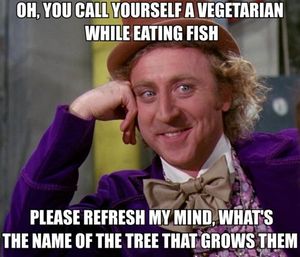NMTS-Group4
Warning:
The material on this page has been created as part of a seminar. It is still heavily under construction and we do not guarantee its correctness. If you have comments on this page or suggestions for improvement, please contact Manfred Sailer.
This note will be removed once the page has been carefully checked and integrated into the main part of this wiki.
Wikipage of Group 4
Overview
Members
Short description of the topic
An implicature is anything that is inferred from an utterance but that is not a condition for the truth of the utterance. There are different types of implicatures. Below you find a brief overview:
- Convesational implicatures
- Generalized conversational implicatures
- Particularized conversational implicatures
- Scalar implicatures
- Conventional implicatures
- Potential implicature: A potential implicature is an implicature that would arise from any of the components of a given utterance if that component were uttered in some linguistic or extralinguistic context.
- Actual implicature: an actual implicature is any potential implicature that is not canceled by its context.
References and Links
References
- Bieswanger, Markus & Annette Becker (2006): Introduction to English Linguistics (2nd edition). Tübingen and Basel: A. Francke Verlag.
- Grice, Paul (1975): Logic and conversation. In P. Cole and J. Morgan (eds): Syntax and Semantics 3, 41-58. New York: Academic Press.
- Levinson, Stephen C (1983): Pragmatics. Cambridge: Cambridge University Press.
- Yule, George (1996): Pragmatics. Oxford: Oxford University Press.
Links
- Definition of implicature from the Oxford English Dictionary
- Definition and detailed explanation from the Stanford Encylopedia of Philosophy
- Definition from Universal Teacher
- Glottopedia Entry on Implicature
Our e-learning objects
Our wiki pages
in the Basic Glossary:
Our podcasts
Our Prezi presentation
Our Online Excercise
1. Look at the pictures below and decide which of the following figures of speech apply.
Irony, Sarcasm, Hyperbole or Metaphor
To see the solution, simply mark the line behind the word 'solution' under every picture.
Solution:Hyperbole
Solution:Irony
Solution:Metaphor
Solution:Sarcasm
2. There are four basic maxims of conversation. Quantity, Manner, Quality, Relation. Which maxims apply for the five dialogues below?
Take a look at our Prezi presentation if you need help with the maxims.
To see the solution, simply mark the line behind 'Maxim violated' under every dialogue.
1. Mom: What did you think of Junior’s childish behavior last night? Dad: Well, boys will be boys
Maxim violated:QUANTITY (though some of you might prefer MANNER)
2. Student A: Do you like Linguistics?
Student B: Well, let’s just say I don’t jump for joy before class.
Maxim violated:MANNER
3. Teacher A: Do you have any rude students this semester?
Teacher B: All students are rude.
Maxim violated:QUALITY
4. Student: I was absent on Monday - did I miss anything important?
Teacher: Oh no, of course not, we never do anything important in class.
Maxim violated:QUALITY
5. Student A: (while waiting for class to begin) Isn’t Professor X a jerk?
Student B: Uh, It really is a nice day out, isn’t it?
Maxim violated:RELATION
3. This exercise deals with Scalar Implicatures. A linguistic scale consists of a set of linguistic alternates, or contrastive expressions of the same grammatical category, which can be arranged in a linear order by degree of informativeness or semantic strength. Put the following sentences in the right order. Start with the sentence which contains the strongest quantifier.
Again, to see the solution, simply mark the lines under the word 'solution'.
1. All of the boys went to the party.
2. Some of the boys went to the party.
3. Most of the boys went to the party.
4. A few of the boys went to the party.
5. Many of the boys went to the party
Solution:
1. All of the boys went to the party.
2. Most of the boys went to the party.
3. Many of the boys went to the party.
4. Some of the boys went to the party.
5. A few of the boys went to the party.






